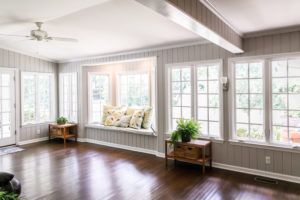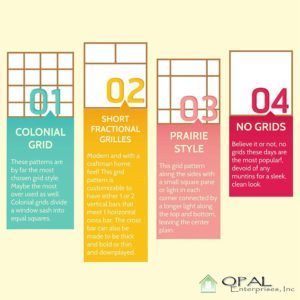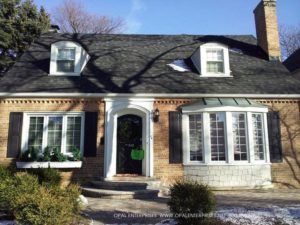1. Introduction: Definition of Sunroom Windows
What are Sunroom Windows?
A sunroom is a room designed to let in natural sunlight, typically through windows and skylights. Sunroom windows are an essential element of any sunroom, playing a critical role in the room’s design, function, and overall aesthetic.
Importance of Choosing the Right Sunroom Windows
Choosing the right sunroom windows is crucial to the success of your sunroom project. The right windows need to be both functional and aesthetically pleasing, energy-efficient, and durable. Choosing the wrong windows can lead to a poorly functioning, uncomfortable space that doesn’t provide the benefits of natural light or protection from the elements.
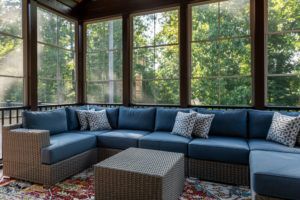
2. Types of Sunroom Windows
Single-Pane Windows
Single-pane windows are the most basic type of sunroom window, consisting of a single pane of glass. While they are the most affordable option, they are also the least energy-efficient and not recommended for use in cold climates or areas with extreme temperature variations.
Double-Pane Windows
Double-pane windows are an improvement over single-pane windows, consisting of two panes of glass separated by a layer of gas, typically argon. This gas provides excellent insulation, making double-pane windows more energy-efficient than single-pane windows. Double-pane windows are also less likely to fog up or develop condensation.
Triple-Pane Windows
Triple-pane windows are the most energy-efficient type of sunroom window, consisting of three panes of glass separated by two layers of gas. Triple-pane windows are ideal for use in areas with extreme temperature variations, as they provide excellent insulation and can help reduce energy costs.
Tempered Glass
Tempered glass is a type of safety glass that is heat-treated to make it stronger and more resistant to breakage. Tempered glass is an excellent choice for sunroom windows, as it is more durable and less likely to shatter than regular glass.
Tinted Windows
Tinted windows are an excellent option for sunroom windows, as they help reduce glare and protect against harmful UV rays. Tinted windows come in a variety of shades and can be customized to meet your specific needs.
Low-E Glass
Low-E glass is a type of energy-efficient glass that has a special coating that reflects heat back into the room. Low-E glass can help reduce energy costs and keep your sunroom comfortable year-round.
Insulated Windows
Insulated windows are designed to provide excellent insulation and energy efficiency. They typically consist of two or more panes of glass separated by a layer of gas or air. Insulated windows are an excellent choice for sunroom windows, as they can help keep your sunroom comfortable year-round and reduce energy costs.
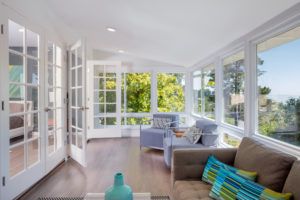
3. Factors to Consider When Choosing Sunroom Windows
Location and Climate
When choosing sunroom windows, it’s important to consider the location and climate of your home. If you live in an area with harsh weather conditions, such as extreme heat or cold, you’ll need windows that are capable of withstanding these conditions. Additionally, the direction your sunroom faces can affect the amount of sunlight and heat it receives, which can impact your choice of windows.
Energy Efficiency
Energy-efficient sunroom windows can help you save on your energy bills while keeping your sunroom comfortable year-round. Look for windows with low U-values, which indicate that they are well-insulated and can help prevent heat loss in the winter and heat gain in the summer.
UV Protection
Sunroom windows should provide adequate UV protection to prevent fading of furniture, flooring, and other interior elements from the sun’s harmful rays. Consider windows with a special UV-protective coating or tinting to block out the sun’s harmful rays.
Ventilation
Proper ventilation is important for maintaining good air quality and preventing moisture buildup in your sunroom. Consider windows that can be opened and closed to allow for air circulation and fresh air to enter the space.
Size and Placement
The size and placement of your sunroom windows can impact the amount of natural light that enters the space. Consider the size and placement of your windows carefully to maximize natural light and create a bright, airy feel in your sunroom.
Style and Design
Finally, consider the style and design of your sunroom windows. You want windows that not only function well but also enhance the overall aesthetic of your sunroom. Choose windows that complement your home’s architecture and design style, and that add visual interest to the space.
4. Benefits of Sunroom Windows
Increased Natural Light
One of the primary benefits of sunroom windows is the increased natural light they provide. Natural light has been shown to improve mood and productivity, and it can make a space feel larger and more welcoming.
Energy Savings
Energy-efficient sunroom windows can help you save on your energy bills by reducing heat loss and gain throughout the year. This is especially important in a sunroom, where temperature control can be challenging.
Improved Indoor Air Quality
Proper ventilation and air circulation through your sunroom windows can help improve indoor air quality and prevent the buildup of harmful pollutants and allergens.
Added Value to Your Home
Investing in high-quality sunroom windows can add value to your home and make it more attractive to potential buyers in the future.
Enhanced Aesthetics
Finally, sunroom windows can enhance the overall aesthetics of your space, adding visual interest and creating a bright, welcoming atmosphere.
5. Maintenance and Care for Sunroom Windows
Cleaning
Regular cleaning is important for maintaining the appearance and function of your sunroom windows. Use a gentle, non-abrasive cleaner and avoid harsh chemicals that can damage the glass or frames.
Repair and Replacement
If your sunroom windows become damaged or worn, it’s important to have them repaired or replaced promptly to prevent further damage or energy loss.
Sealing and Weatherproofing
Proper sealing and weatherproofing can help prevent air and moisture leaks around your sunroom windows, improving energy efficiency and preventing damage from the elements.
6. Conclusion
Investing in high-quality sunroom windows is crucial as it can help in maximizing natural light, improving energy efficiency, providing better insulation and UV protection, and increasing the value of your home.
To choose the right sunroom windows, prioritize energy efficiency and insulation based on the climate, location, and size of your sunroom. Maintain your windows regularly by cleaning and inspecting them to increase their lifespan. Investing in high-quality sunroom windows can provide natural light, energy savings, improved air quality, added value, and aesthetics. Contact Opal Enterprises now to get the best Sunroom Windows deal!



